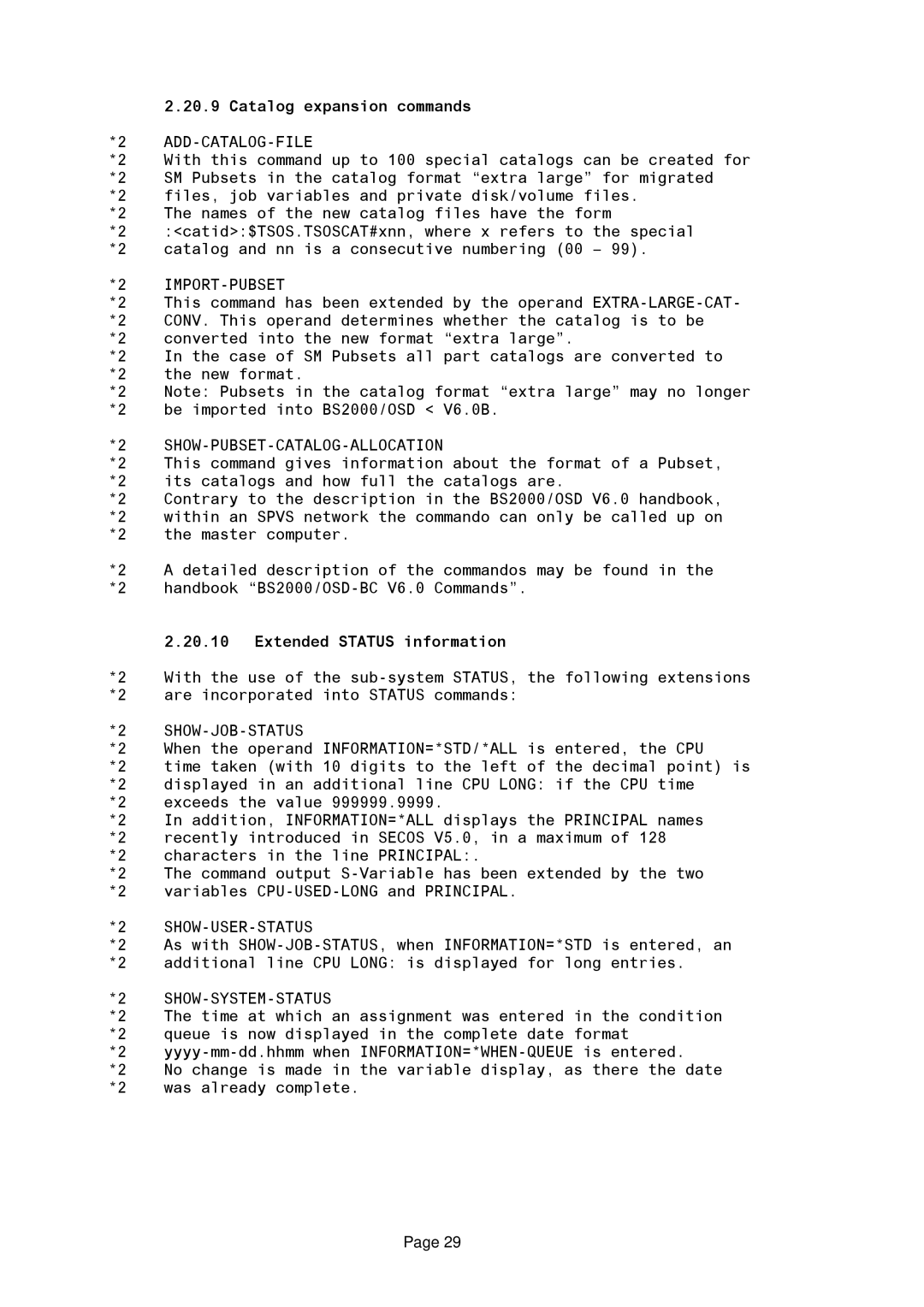2.20.9 Catalog expansion commands
*2 ADD-CATALOG-FILE
*2 With this command up to 100 special catalogs can be created for
*2 SM Pubsets in the catalog format “extra large” for migrated
*2 files, job variables and private disk/volume files.
*2 The names of the new catalog files have the form
*2 :<catid>:$TSOS.TSOSCAT#xnn, where x refers to the special
*2 catalog and nn is a consecutive numbering (00 – 99).
*2 IMPORT-PUBSET
*2 This command has been extended by the operand
*2 CONV. This operand determines whether the catalog is to be
*2 converted into the new format “extra large”.
*2 In the case of SM Pubsets all part catalogs are converted to
*2 the new format.
*2 Note: Pubsets in the catalog format “extra large” may no longer
*2 be imported into BS2000/OSD < V6.0B.
*2 SHOW-PUBSET-CATALOG-ALLOCATION
*2 This command gives information about the format of a Pubset,
*2 its catalogs and how full the catalogs are.
*2 Contrary to the description in the BS2000/OSD V6.0 handbook,
*2 within an SPVS network the commando can only be called up on
*2 the master computer.
*2 A detailed description of the commandos may be found in the
*2 handbook
2.20.10Extended STATUS information
*2 With the use of the
*2 are incorporated into STATUS commands:
*2 SHOW-JOB-STATUS
*2 When the operand INFORMATION=*STD/*ALL is entered, the CPU
*2 time taken (with 10 digits to the left of the decimal point) is *2 displayed in an additional line CPU LONG: if the CPU time
*2 exceeds the value 999999.9999.
*2 In addition, INFORMATION=*ALL displays the PRINCIPAL names *2 recently introduced in SECOS V5.0, in a maximum of 128
*2 characters in the line PRINCIPAL:.
*2 The command output
*2 SHOW-USER-STATUS
*2 As with
*2 SHOW-SYSTEM-STATUS
*2 The time at which an assignment was entered in the condition *2 queue is now displayed in the complete date format
*2
*2 No change is made in the variable display, as there the date *2 was already complete.
Page 29
